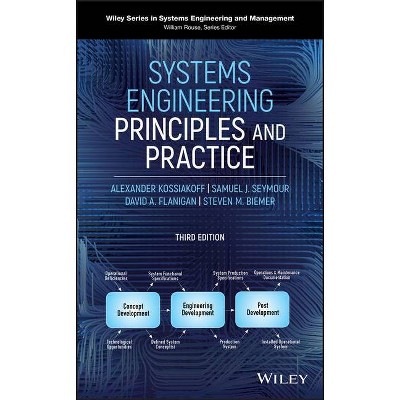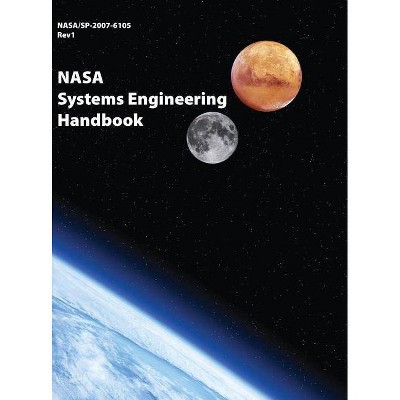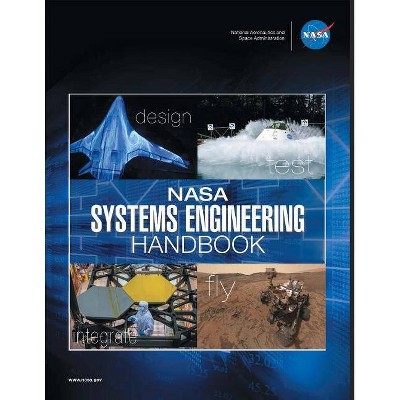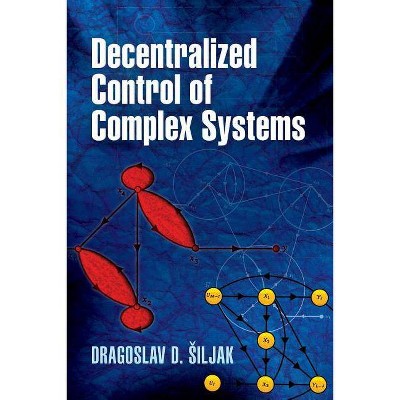Simulation-Based Engineering of Complex Systems - (Wiley Systems Engineering and Management) by John R Clymer (Mixed Media Product)
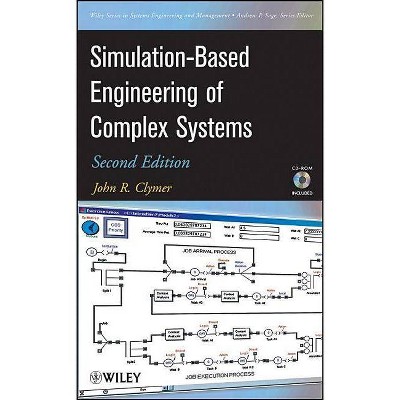
Similar Products
Products of same category from the store
AllProduct info
<p/><br></br><p><b> Book Synopsis </b></p></br></br>A hands-on approach to understanding, designing, analyzing, and evaluating complex systems <p>During the last few years, Simulation-Based Systems Engineering (SBSE) has become an essential tool for the design and evaluation of complex systems. This is the first book to cover the basic principles of complex systems through the use of hands-on experimentation using an icon-based simulation tool.</p> <p>Utilizing the accompanying software tool ExtendSim, which works with the OpEMCSS library, readers are invited to engage in simulation-based</p> <p>experiments that demonstrate the principles of complex systems with an</p> <p>emphasis on design, analysis, and evaluation. A number of real-world examples are included to demonstrate how to model complex systems across a range of engineering, business, societal, economic, and scientific disciplines.</p> <p>Beginning with an introduction to SBSE, the book covers: </p> <ul> <li> <p>Simulation concepts and building blocks</p> </li> <li> <p>Systems design and model development</p> </li> <li> <p>Markov model development</p> </li> <li> <p>Reliability processes</p> </li> <li> <p>Queuing theory in SBSE</p> </li> <li> <p>Rule-based learning and adaptation</p> </li> <li> <p>Agent motion and spatial interactions</p> </li> <li> <p>Multi-agent system of systems</p> </li> </ul> <p>Assuming only a very basic background in problem-solving ability, this book is ideal as a textbook for students (a homework solution manual is also available) and as a reference book for practitioners in industry.</p><p/><br></br><p><b> From the Back Cover </b></p></br></br><p>A hands-on approach to understanding, designing, analyzing, and evaluating complex systems</p> <p>During the last few years, Simulation-Based Systems Engineering (SBSE) has become an essential tool for the design and evaluation of complex systems. This is the first book to cover the basic principles of complex systems through the use of hands-on experimentation using an icon-based simulation tool.</p> <p>Utilizing the accompanying software tool ExtendSim, which works with the OpEMCSS library, readers are invited to engage in simulation-based</p> <p>experiments that demonstrate the principles of complex systems with an</p> <p>emphasis on design, analysis, and evaluation. A number of real-world examples are included to demonstrate how to model complex systems across a range of engineering, business, societal, economic, and scientific disciplines.</p> <p>Beginning with an introduction to SBSE, the book covers: </p> <ul> <li> <p>Simulation concepts and building blocks</p> </li> <li> <p>Systems design and model development</p> </li> <li> <p>Markov model development</p> </li> <li> <p>Reliability processes</p> </li> <li> <p>Queuing theory in SBSE</p> </li> <li> <p>Rule-based learning and adaptation</p> </li> <li> <p>Agent motion and spatial interactions</p> </li> <li> <p>Multi-agent system of systems</p> </li> </ul> <p>Assuming only a very basic background in problem-solving ability, this book is ideal as a textbook for students (a homework solution manual is also available) and as a reference book for practitioners in industry.</p><p/><br></br><p><b> Review Quotes </b></p></br></br><br>Simulation-Based Engineering of Complex Systems provides a methodology and a tool to gain understanding on complex systems through simulation based engineering. The software tool (ExtendSimTM) which is provided as a CD works with the OpEMCSS library and gives the readers an opportunity of experimentation. (<i>Journal of Artificial Societies and Social Simulation</i>, July 2010)<br /> <br /><br><p/><br></br><p><b> About the Author </b></p></br></br><p>John R. Clymer, PhD, is a Professor at California State University at Fullerton.</p>
Price History
Price Archive shows prices from various stores, lets you see history and find the cheapest. There is no actual sale on the website. For all support, inquiry and suggestion messagescommunication@pricearchive.us
